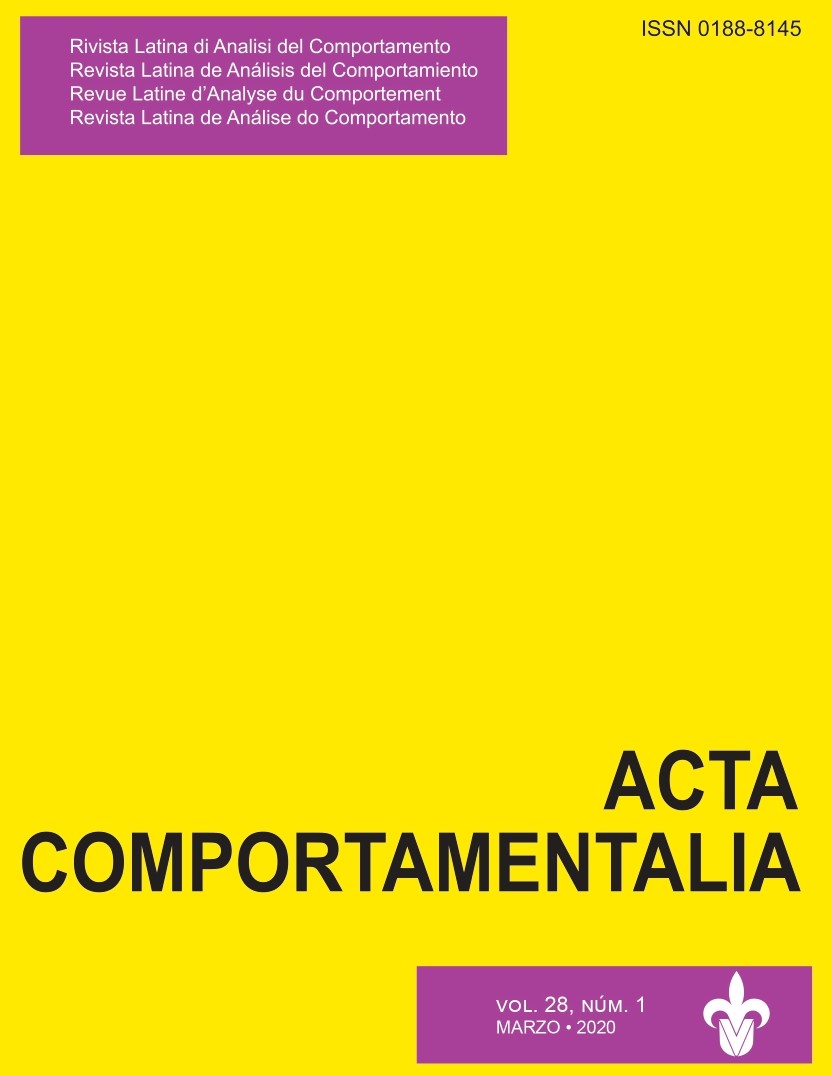Efecto del Entrenamiento en Habilidades Conductuales sobre el establecimiento de habilidades sociales en niños con autismo
DOI:
https://doi.org/10.32870/ac.v28i1.75179Keywords:
Behavioral Skills Training, autism, social skills.Abstract
The purpose of the present paper was to evaluate the effect of Behavioral Skill Training (BST) on social skills in children with autism. A second purpose was to evaluate the effect of different kinds of models on social skills in children with autism. Social skills were operationally defined as a contextually appropriate motor and vocal responses to a display of affect by a model. Participants included three children with autism. A multiple baseline design across participants was used. During the baseline an actor represented one of three emotions, frustration, happiness or pain. There were not programmed consequences for the responses of the participants. During the BST the instructions and model of the correct response was present in a video. The models were an adult, a child or a superhero. Following the presentation of the video an actor represented the emotion and the correct responses of the participant were recorded. Appropriate motor and vocal responses increased with the introduction of the BST. There was no difference in the motor and vocal responses when comparing the different models.
Downloads
Downloads
Published
How to Cite
Issue
Section
License

<a rel="license" href="http://creativecommons.org/licenses/by-nc-sa/4.0/"><img alt="Licencia de Creative Commons" style="border-width:0" src="https://i.creativecommons.org/l/by-nc-sa/4.0/88x31.png" /></a><br />Este obra está bajo una <a rel="license" href="http://creativecommons.org/licenses/by-nc-sa/4.0/">licencia de Creative Commons Reconocimiento-NoComercial-CompartirIgual 4.0 Internacional</a>.






